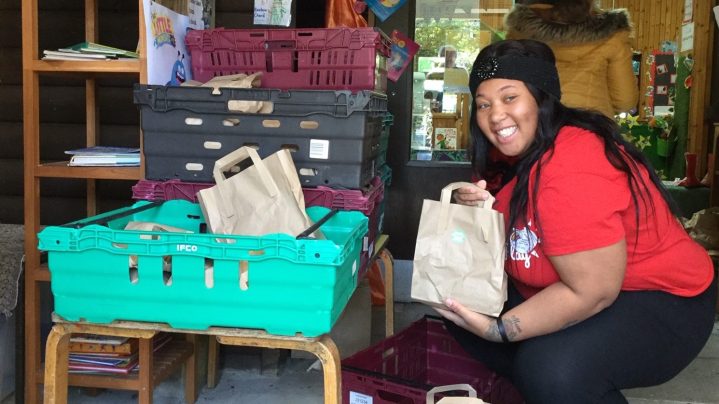
British charities buckle under crisis as fundraising dries up
British charities buckle under crisis as fundraising dries up

Britain’s charities have been badly affected by the pandemic. With fundraising events canceled, charity shops closed and many volunteers in lockdown, the so-called third sector is in deep financial trouble. As many as one-half of British charities could go bust, and that would not only be a humanitarian debacle. It could also cost the U.K. economy dearly.

Candice James and her colleagues at the Loughborough Community Centre at Max Roach, in Brixton south London, have been hard at work in spite of the lockdown. They’ve been running an emergency food service delivering nutritious, free lunches to more than 120 local children living in low-income households.
The bright and airy community center, with its club for the under-5s and an adventure playground for older children, is nestling on the edge of a beautiful park. But the location belies the bleak economics of the neighborhood: many of the families living here are struggling. And, now, so is the center.
“Many of our income strands have stopped. The fundraising has dried up,” said James, the manager. “We’re living off our reserves, and they’re going to run out fast. And when we get to that point, we’re going to have to reduce much of our activities.”
Having provided support and stimulation for local children and their families for almost 40 years, the whole center is now at risk.
“I don’t like to think about it, but yes, we could go under,” James admitted. “This could be the end of Loughborough Community Centre. I don’t want COVID to be the end, but we have to face that it could be the reality.”
There are hundreds of other charities — across the British capital — that are also in trouble.
Research by the Childhood Trust, London’s main child-poverty charity, suggests that 40% of the groups helping disadvantaged children in the city could go bust as a result of COVID-19. The trust’s CEO, Laurence Guinness, says these charities serve the estimated 700,000 children in London living impoverished lives.

“Many of them will never go on a holiday, for example. Many of them lack basic household items, things like toothpaste, a regular hot bath, things like having enough light bulbs in the house,” Guinness said.
The problem of dwindling resources, of course, is not confined to the children’s charities or to London.
Britain’s entire charitable sector, according to one estimate, will need more than $5 billion to fill the gap left by the pandemic. And yet, the government has offered only $900 million worth of support.
“It’s not enough,” Guinness said. “This is going to be a very, very big problem going forward.”
And not just in humanitarian terms. The turmoil facing the charities could have big economic consequences too.
Pro Bono Economics, a charity set up after the financial crisis of 2008 to donate economic expertise to good causes, claims that governments always underestimate the economic value of the charitable sector.
“We don’t do a very good job of capturing just what it is that the charities do from an economic point of view,” said Pro Bono’s CEO, Matt Whittaker.

“Consider, for example, the money saved by getting homeless people off the street and into work. You’re likely reducing crime, paying out less in welfare and raising extra tax revenues as well.”
Whittaker co-authored a recent report that attempts to put a figure on the charities’ overall contribution to the economy. Take into account, among other things, the benefit of repairing damaged people, he says, and the amount that volunteers save the taxpayer in salaries for social workers, and the sector is worth much more than the official estimate of $20 billion a year.
“Our estimate is that the sector could be worth as much as 10% of GDP,” or around $250 billion, Whittaker said. “So, if half of the charities out there were to go under, as some of the surveys suggest, then you’re looking at a 5% hit to GDP, which under any other circumstances, that would be something causing the government some sleepless nights.”
The government is already having plenty of those over the vast sums it is spending to protect the country’s productive capacity during the pandemic. Realistically, the charities are probably toward the back of the line for extra support. But the charities say if they do go under, Britain will soon find out how much they’re really worth.
At the Loughborough Community Centre in Brixton, Candice James hopes that COVID-19 will force the U.K. to give the charitable sector the recognition it deserves for offering help that the state does not provide. “If we weren’t here at this center delivering these services to the community, there’d be nothing,” she said.
There’s a lot happening in the world. Through it all, Marketplace is here for you.
You rely on Marketplace to break down the world’s events and tell you how it affects you in a fact-based, approachable way. We rely on your financial support to keep making that possible.
Your donation today powers the independent journalism that you rely on. For just $5/month, you can help sustain Marketplace so we can keep reporting on the things that matter to you.












